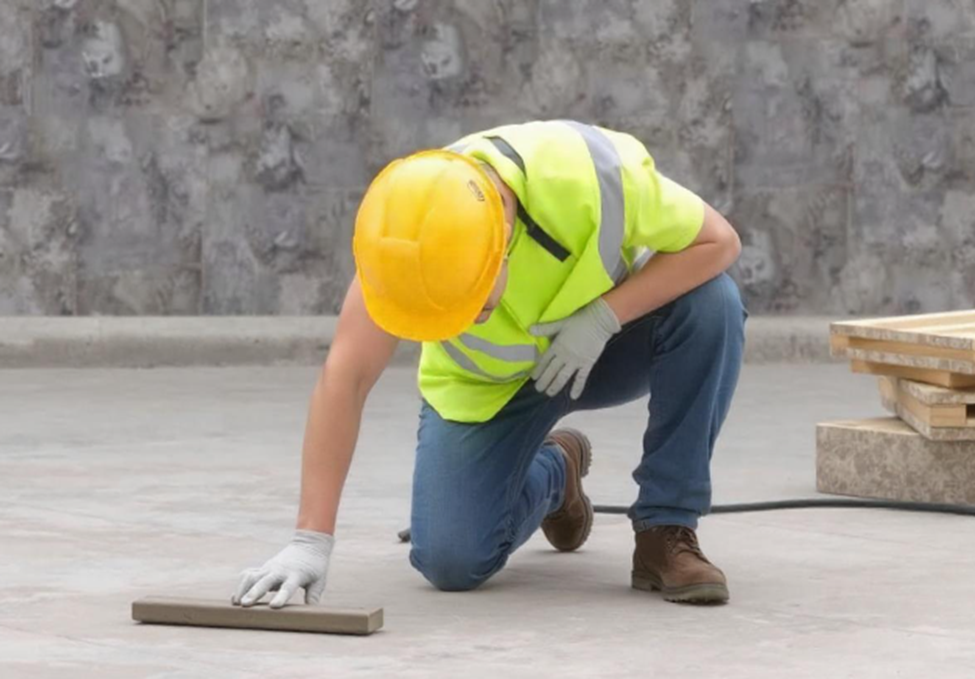Choosing the Right
Contractor and Material for Slabs: Step-by-Step
Good slab construction requires proper selection of material and
contractors to ensure durability, safety, and cost-effectiveness. This guide
shall help you choose material sources and select the right contractors for all
types of slabs.
1. Types of Slabs
But before you decide on which sources of the required materials or even
the contractors for the job should be used, you need to know which slabs are
commonly used in construction work:
- Reinforced Concrete Slabs: The common slab found indoors,
most being reinforced with steel bars to negate the tension forces.
- Pre-stressed Concrete Slabs: Used in large spans,
pre-stressing is introduced to make it potentially well-suited for load
carrying.
- Composite Slabs: Uses concrete and others like
metal decks in the making to ensure greater functionality with minimal
weight.
- Void Form Slabs: Introduces voids or air pockets
to ensure fewer amounts of concrete are needed, as this method is quite
cost-effective in many projects.
2. Procurement of Materials
a. Concrete
- Grade and Strength: The slab should be cast in the
required strength of concrete, according to its purpose. For building
purposes, a grade of M20-M25 will be enough for residential areas, whereas
higher grades like M30 or M40 may be required for commercial or industrial
slabs.
- Mix Design: Cement, aggregates, and water
must be proportioned appropriately to obtain proper strength and
durability for the slab.
b. Reinforcement
- Steel Bars: Select the appropriate diameter
and grade of high-strength steel bars (rebar) for the slab. Rebar strength
is a product of slab thickness and imposed load.
- Mesh: For lighter-load slabs, grids
of steel mesh may be substituted for single rebar when the slabs are
significantly thinner.
c. Admixtures and Additives
- Accelerators and Retarders: An admixture might be needed
based on the project requirement or environment to alter the setting time
of the concrete.
- Waterproofing Agents: If the slabs will be exposed to
moisture or water, consider using a waterproofing agent to enhance
durability.
3. Choosing the Right Contractor
a. Experience and Expertise
- Specialization: Choose only contractors who
specialize in the type of slab you want. For pre-stressed concrete, look
for those who have gained experience in this category.
- Past Projects: Research their portfolio and
references to confirm they can deliver similar projects.
b. Quality of Work
- Licenses: Confirm that they are fully
licensed for operation and adhere to industry standards.
- Workmanship: Ensure their work is
smooth-finished and joints are done correctly.
c. Cost and Timeliness
- Bids and Quotes: Obtain proper quotes from
different contractors to compare their individual prices. The quotes
should contain all aspects of the work, including material and labor
charges.
- Timelines: Clearly explain your project
timelines to ensure the contractor meets your deadlines.
d. Communication and Support
- Communication: The contractor should clearly
communicate and provide ample information about the scope of the project.
- Support: The contractor should provide
after-sale service for any issues or repairs.
4. Extra Tips
- Local Building Codes: Be aware of local building
codes and regulations that may impact your choice of materials and
contractors.
- Site Evaluation: Ensure the construction site is
evaluated professionally and special requirements for the slab are
proposed.
- Agreement: Have a written agreement that
covers all aspects of your project, from material specifications to costs
and timelines.
Be very selective with the material and contractors. In this way, you can
be sure of a strong slab for safe and cost-effective use. This guide helps you
make the right decisions to achieve the best possible outcome for your
construction project.









No comments:
Post a Comment